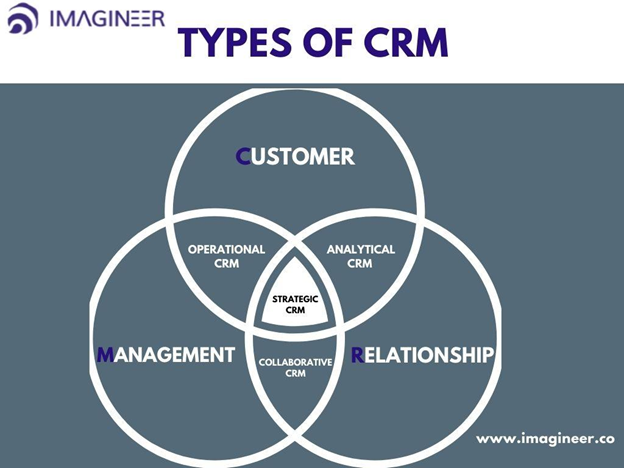What is HubSpot and why is the best CRM for your company?
Setting up and establishing a business has never been simpler, but growing a business is the real challenge. Where once short-sighted strategies were...
By Role
By Industry
By Target Customer
What We Offer
We drive business growth by improving operational efficiency through process optimization, smart automation, and cost control. Our approach boosts productivity, reduces expenses, and increases profitability with scalable, sustainable solutions
Customer Experience
We design memorable, customer-centered experiences that drive loyalty, enhance support, and optimize every stage of the journey. From maturity frameworks and experience maps to loyalty programs, service design, and feedback analysis, we help brands deeply connect with users and grow sustainably.
Marketing & Sales
We drive marketing and sales strategies that combine technology, creativity, and analytics to accelerate growth. From value proposition design and AI-driven automation to inbound, ABM, and sales enablement strategies, we help businesses attract, convert, and retain customers effectively and profitably.
Pricing & Revenue
We optimize pricing and revenue through data-driven strategies and integrated planning. From profitability modeling and margin analysis to demand management and sales forecasting, we help maximize financial performance and business competitiveness.
Digital Transformation
We accelerate digital transformation by aligning strategy, processes and technology. From operating model definition and intelligent automation to CRM implementation, artificial intelligence and digital channels, we help organizations adapt, scale and lead in changing and competitive environments.
Operational Efficiency
We enhance operational efficiency through process optimization, intelligent automation, and cost control. From cost reduction strategies and process redesign to RPA and value analysis, we help businesses boost productivity, agility, and sustainable profitability.
Customer Experience
Marketing & Sales
Pricing & Revenue
Digital Transformation
Operational Efficiency
From the first year of operation of any company, one of the main challenges in its day to day is the management of the relationship with its customers. Throughout history and according to the type of industry in which your business is developed, the way in which contacts were managed was quite different from how many companies develop it today. Previously, through mass communication strategies, companies attracted the attention of their customers to their different points of sale, show rooms, exhibitions open to the public, but the focus of these strategies was not the capture of their data, the management since they get to know us, consume our products and services, and post-sales follow-up was just that.
Companies were only concerned with attracting people, attracting their attention to our business activity. Nowadays, management has changed, it is no longer only important that attention, in an era full of information, where people are in high contact with hundreds of brands daily, that is the reason why we require a means by which we follow up and store their data to attract them, manage their activity, needs and get them to be a loyal customer to our brand; at that moment is when the use of a CRM or better known as (Customer Relationship Management) is crucial.
In this blog you will read about:
In case you are not familiar with this business management tool, a CRM is a tool that is responsible for managing the relationship between companies and their customers, it is more than a platform or software, a CRM is a set of strategic and technological processes that together collaborate in the storage, management and analysis of all interactions has maintained, is performing and may exercise the customer with our brand.
In the market there are many types of CRM, prices and although each one will have differentiators and different benefits depending on the industry, it is important to understand that all maintain the same objective, to be an instrument that collaborates with the business strategies of our company, to help us manage the relationship with our customers and improve the ways in which we previously managed their activity.

Perhaps before identifying new needs for our company, we tend to think first about our problems, ¿don’t we? In our company, what have been the problems we have had in recent years in terms of managing our customers? Let's analyze this in perspective of our customer's customer journey by means of an example. "Our customer searches for our product or service on social networks, our website or simply finds our company or premises, enters, searches for a product or service of interest and generates a purchase". In types of examples like this it is important that we can answer the following questions to generate a diagnosis of the current relationship with our customer:
If at the time of considering all these questions, you need to rethink within the company the way in which they have raised the model and strategies focused on managing the relationship with their customers.
It is the ideal time to opt for the implementation of a CRM for our business. Among the basic features and benefits of a good CRM for your business we can find:
A CRM helps you to manage the constant efforts and business processes of the different departments of your company regardless of the type of industry in which your business is developed and this is possible because according to the volume and growth of your business there will be a CRM suitable for your needs.
These aspects are some of the many benefits and most important features of the most complete CRMs. It is important to consider that although a CRM fits the basic needs of a business, it is important to consider which one is the most robust and will provide the best conditions and benefits to your business.

It is important to consider that not all CRMs are the same. According to the objectives for which they were created, some may be more or less feasible for a company's business model. Given that there are:
The following are three of the most popular enterprise-level, robust CRM types and their most important differentiators:
It has a Marketplace with hundreds of applications for integration, partners that provide platform services. It efficiently adjusts to different business and strategic methodologies between departments such as: Design Thinking, Lean Startup, Agile, CX (Customer Experience), Inbound Marketing among others.
It also has a community with which there is the possibility of interacting with other companies promoting growth and a HubSpot Academy with which as your business scales with the use of CRM can also get between users of the company which are certifications given by the company to expand the professional development of each user of the company and that additional in the case of partners can get merits from HubSpot to provide their services and is part of the market leaders in the CRM market.
If you feel interested in learning even more about CRMs, how it can help you and which one might be more feasible for your business.

Setting up and establishing a business has never been simpler, but growing a business is the real challenge. Where once short-sighted strategies were...

All companies have a common denominator, the challenge of how to sell more, clearly the holy grail of any commercial strategy.

Big Data is one of the biggest challenges for companies and one of the top priorities among company managers. This powerful field is no stranger to...